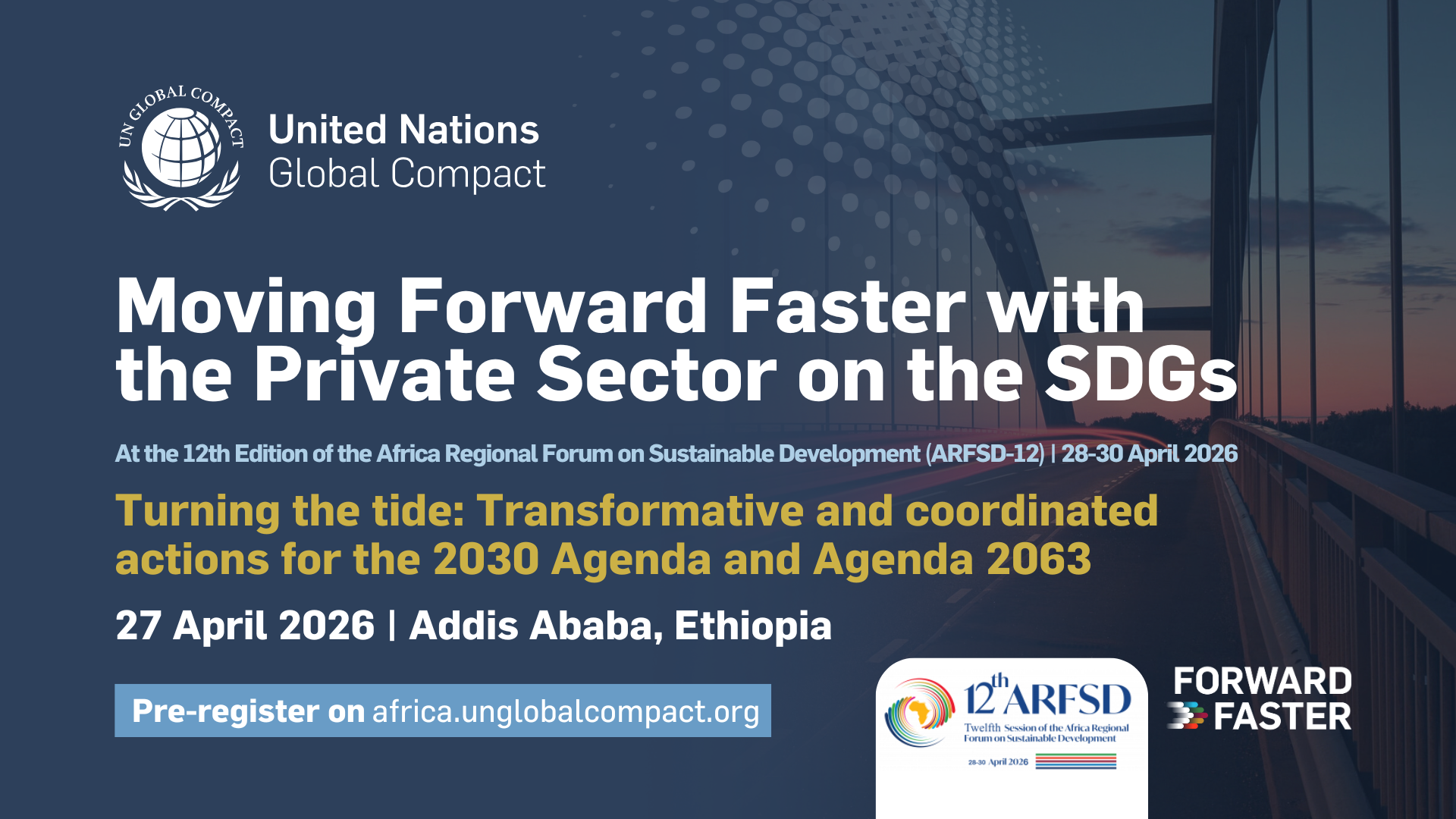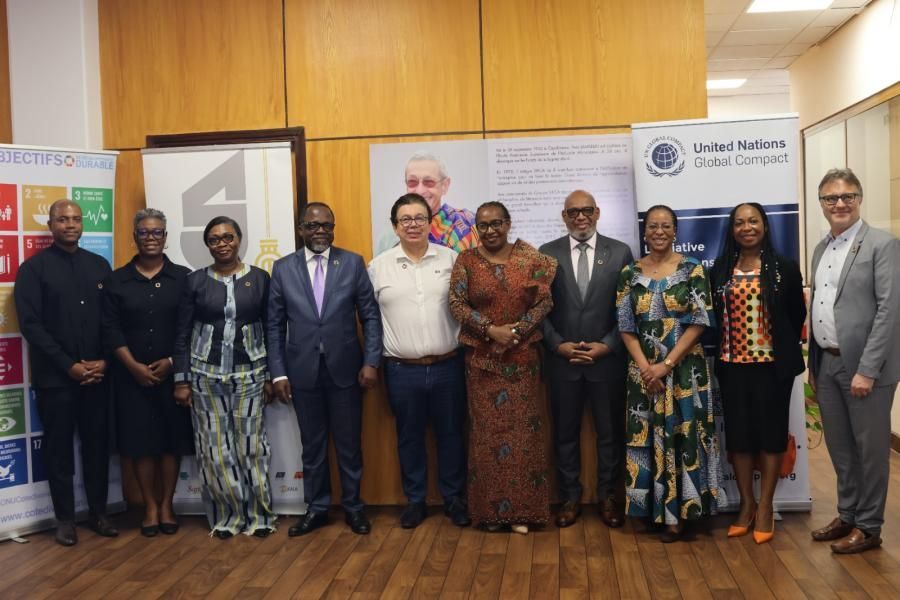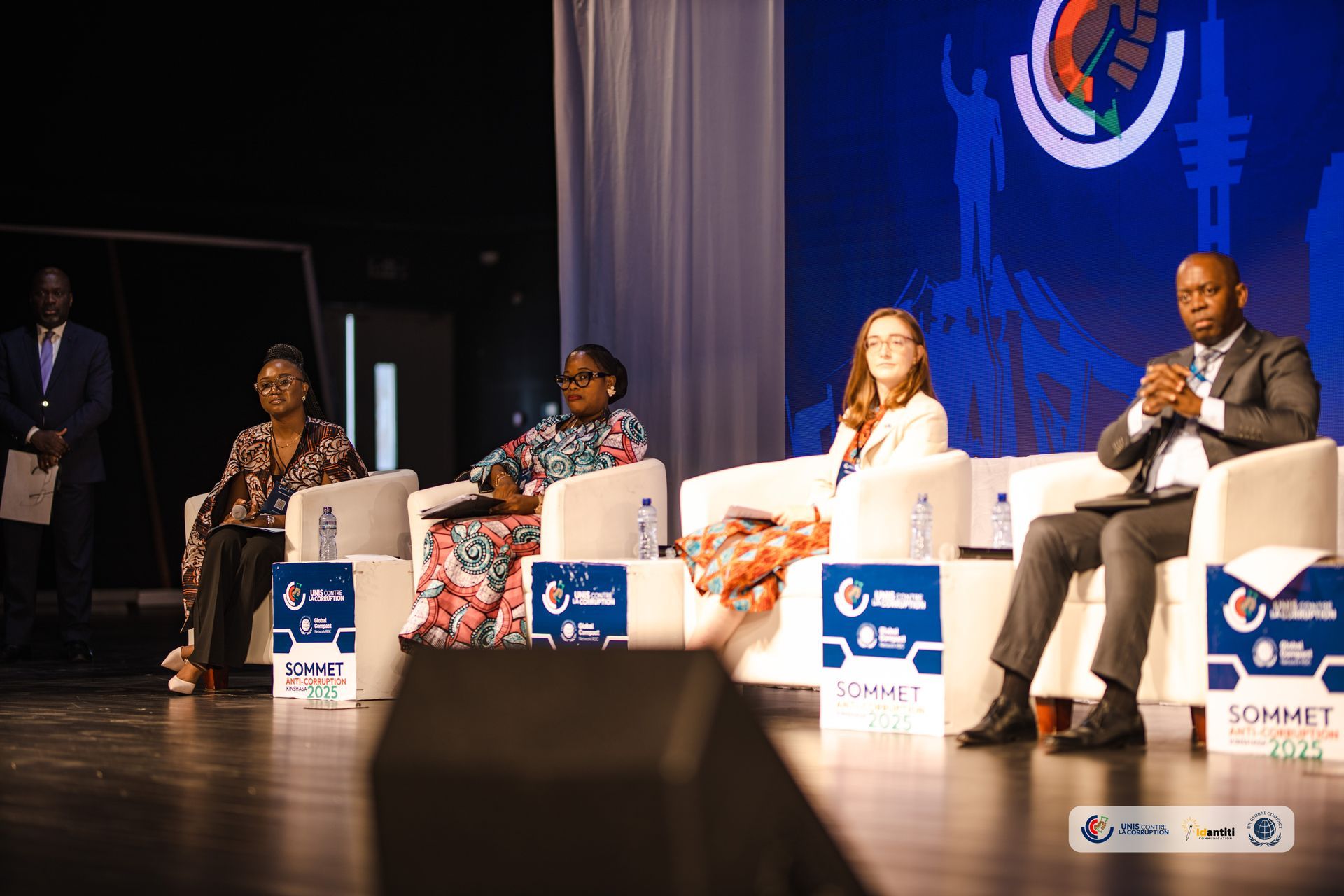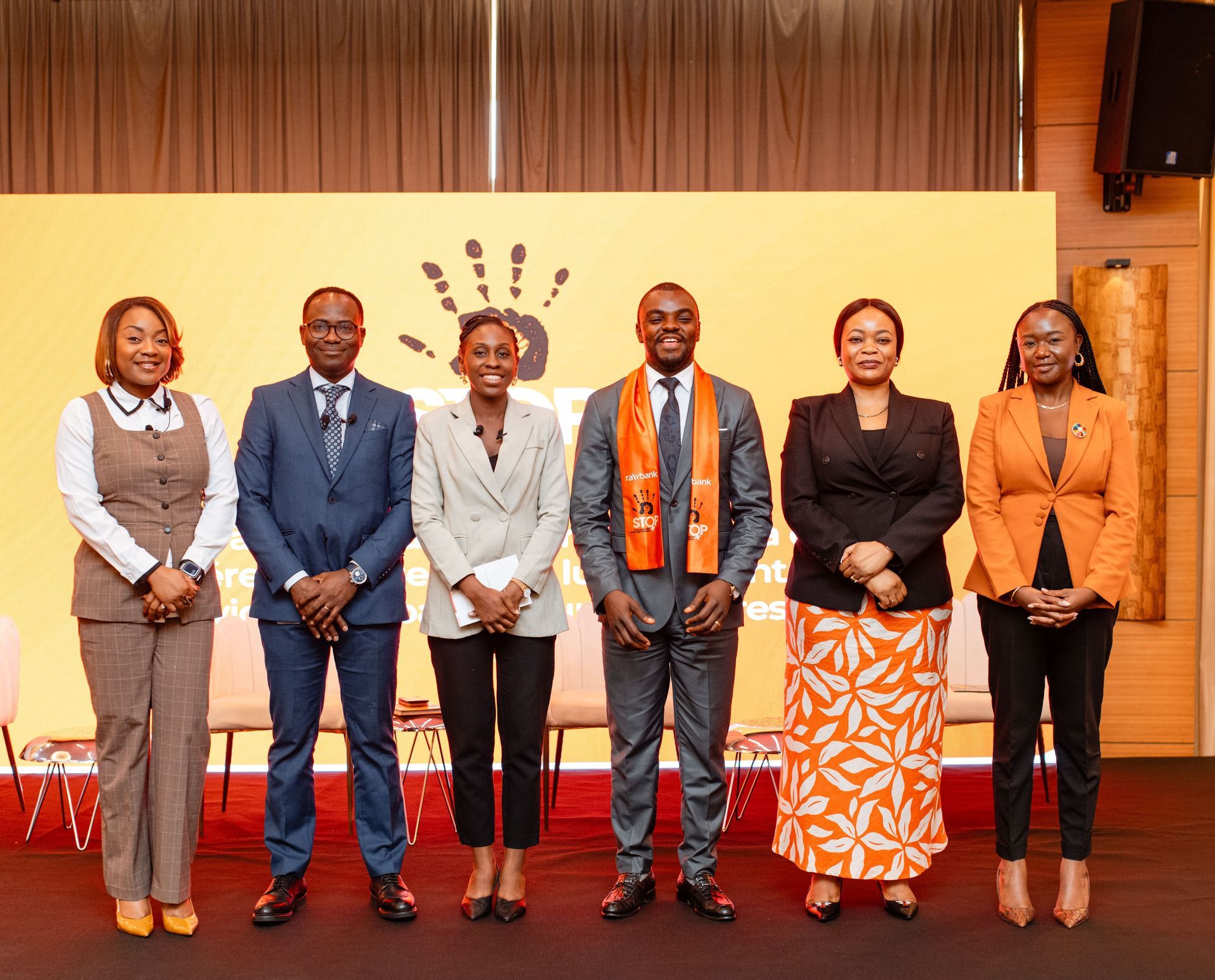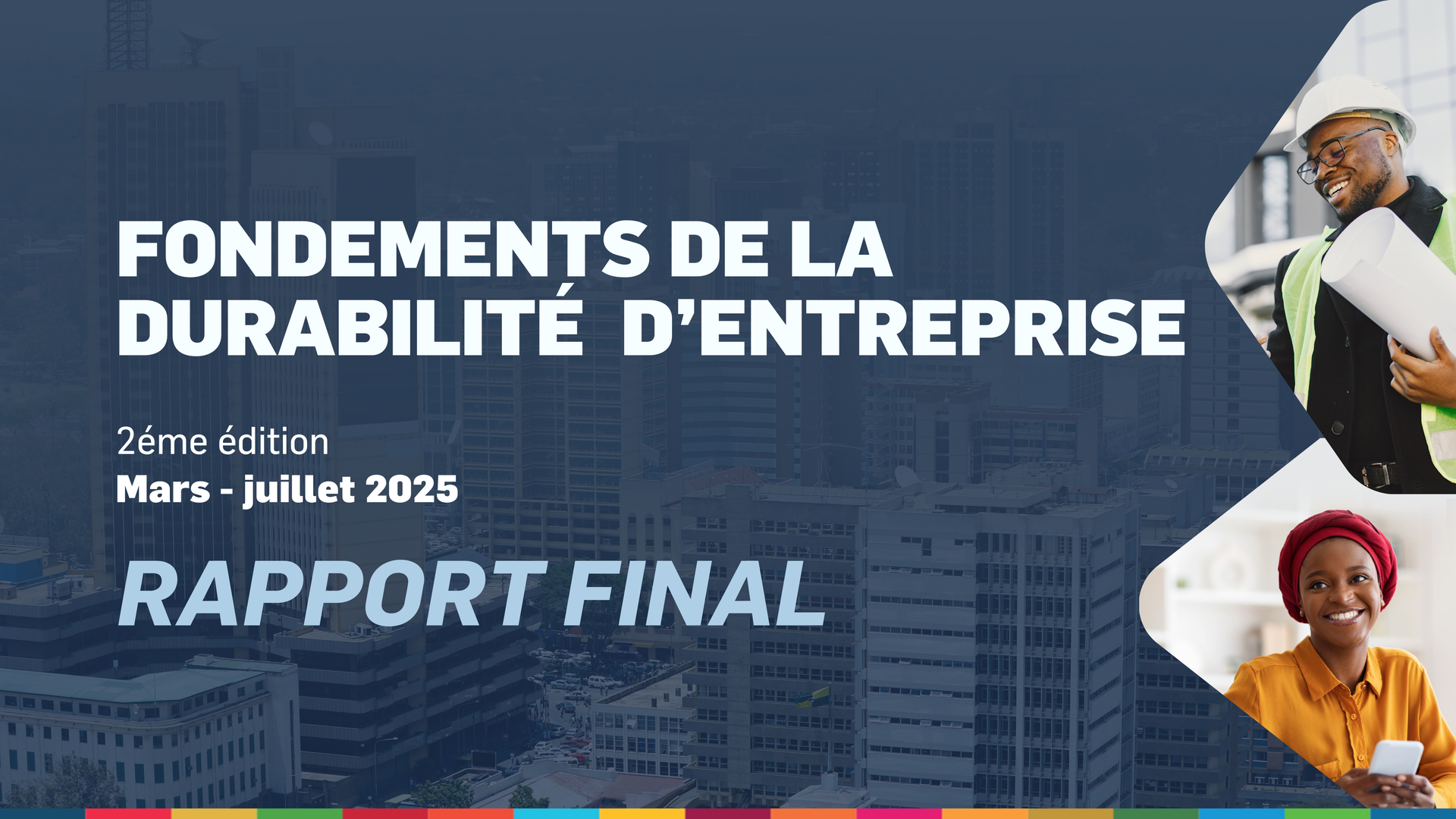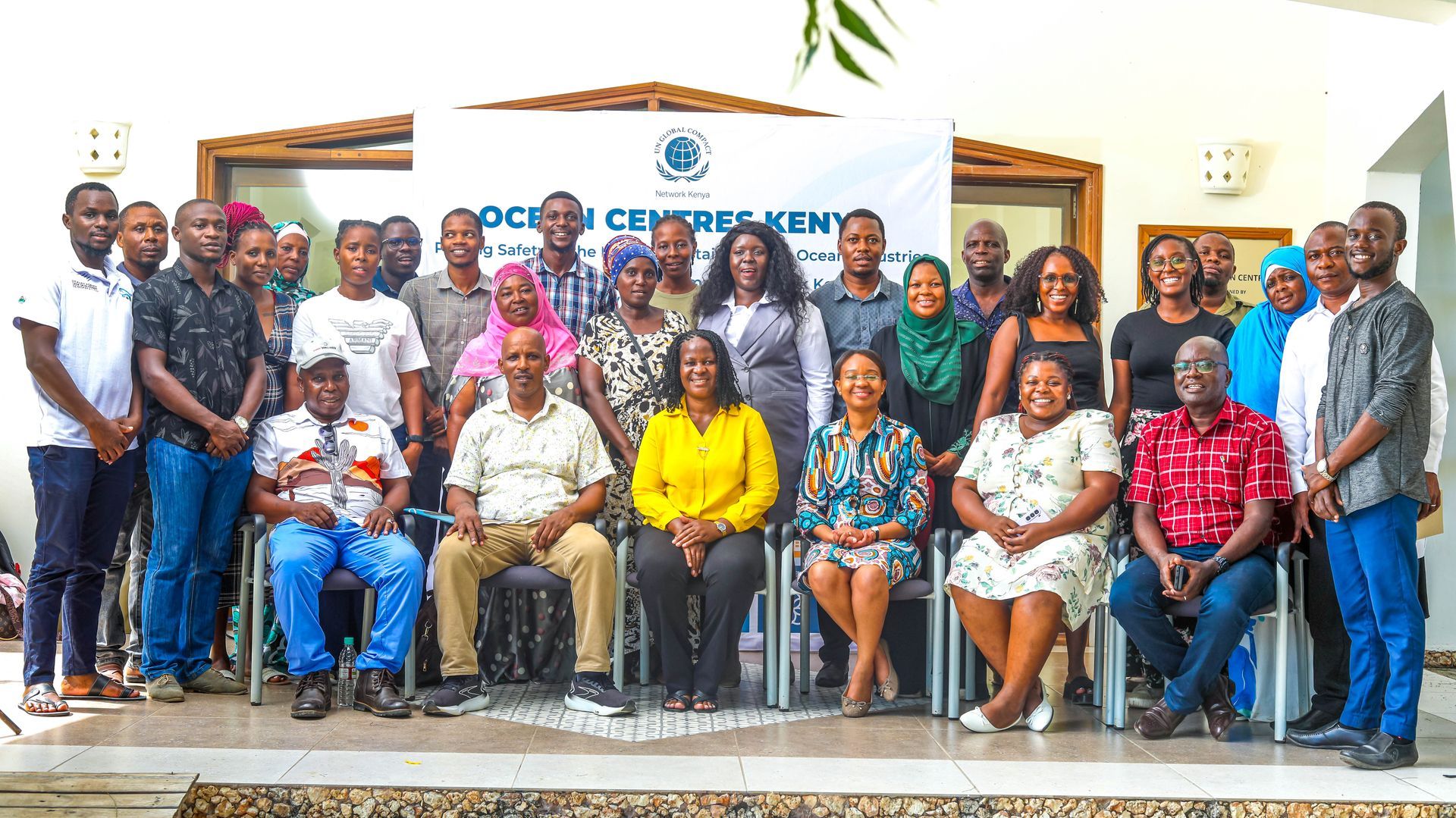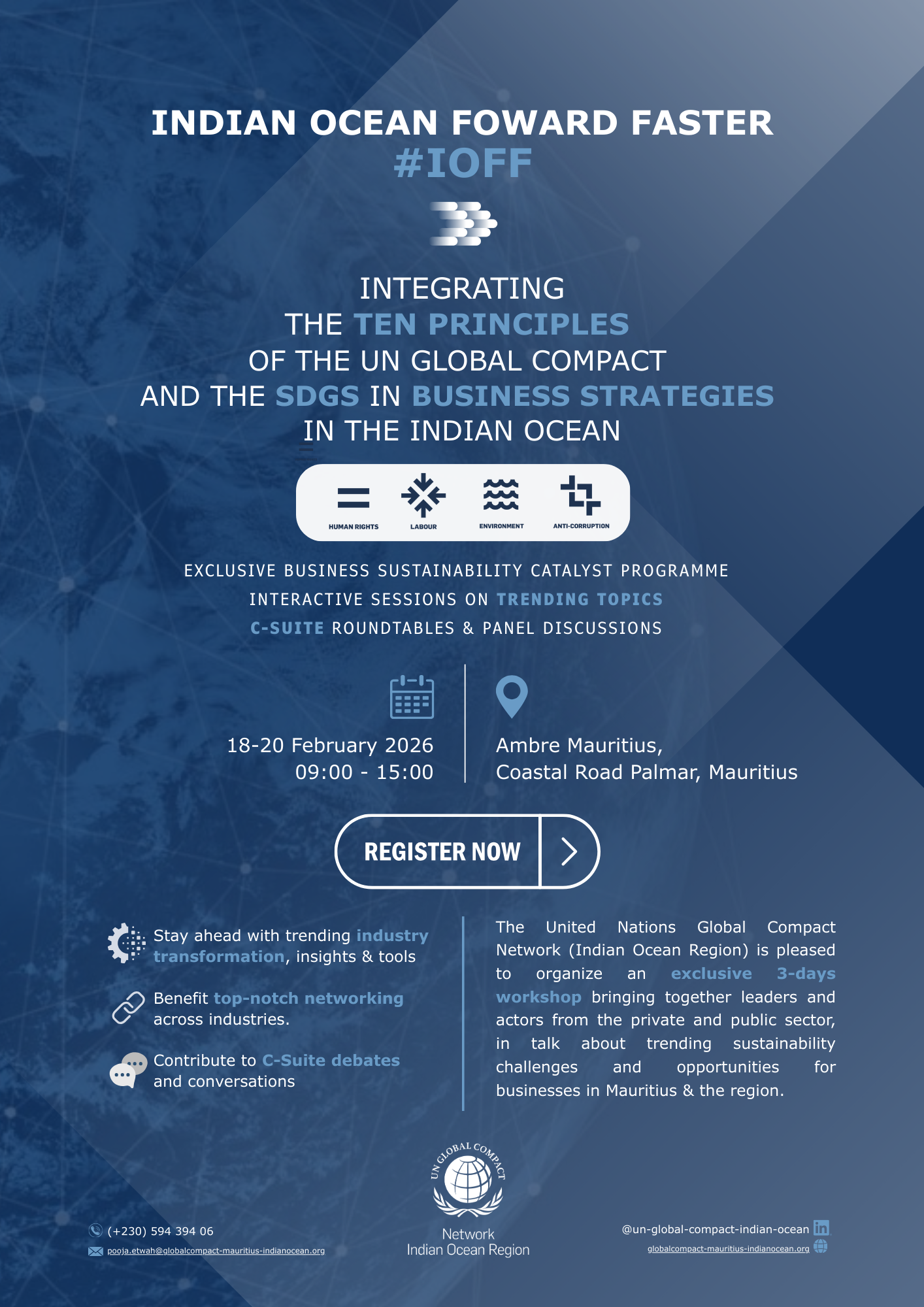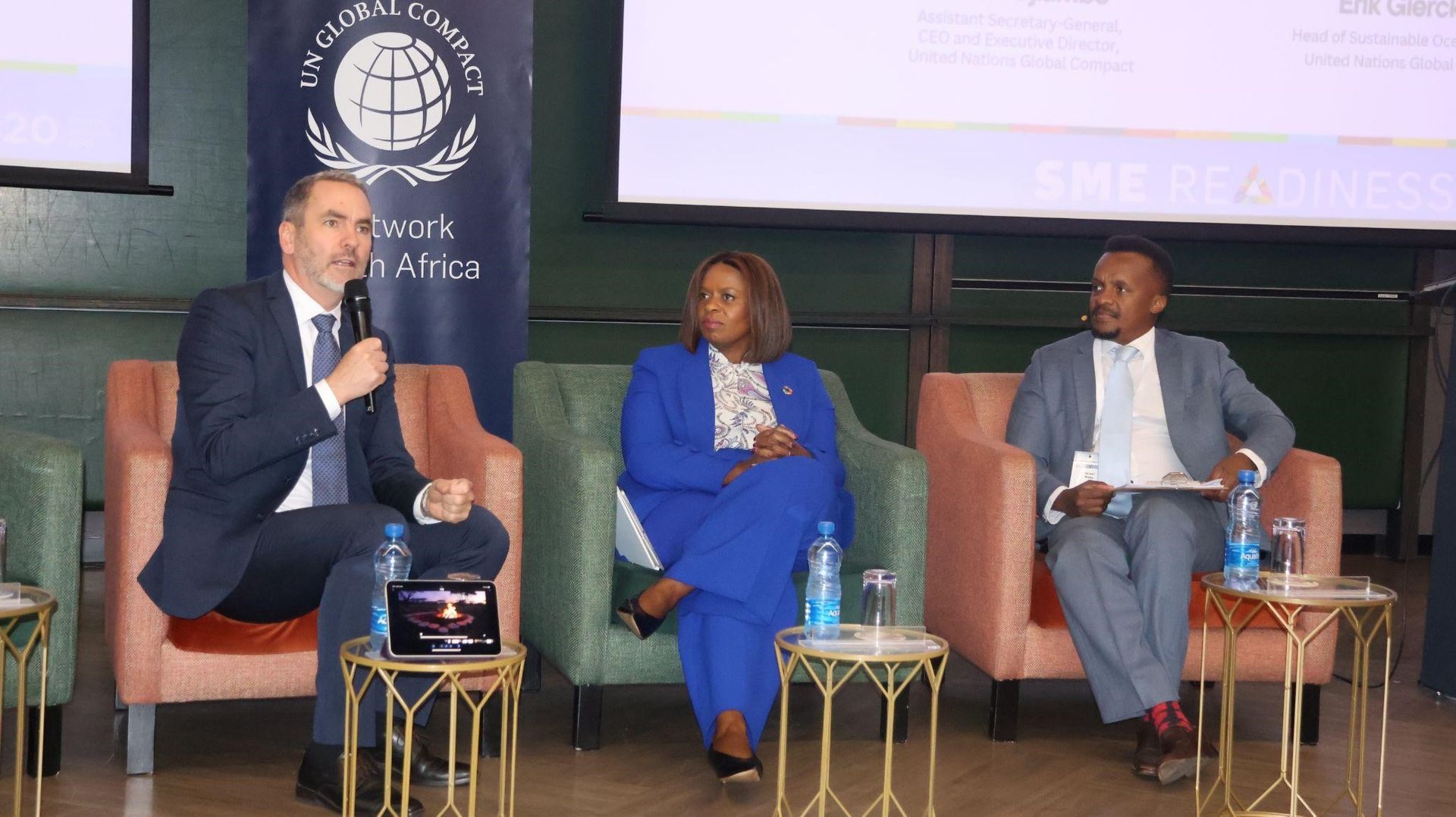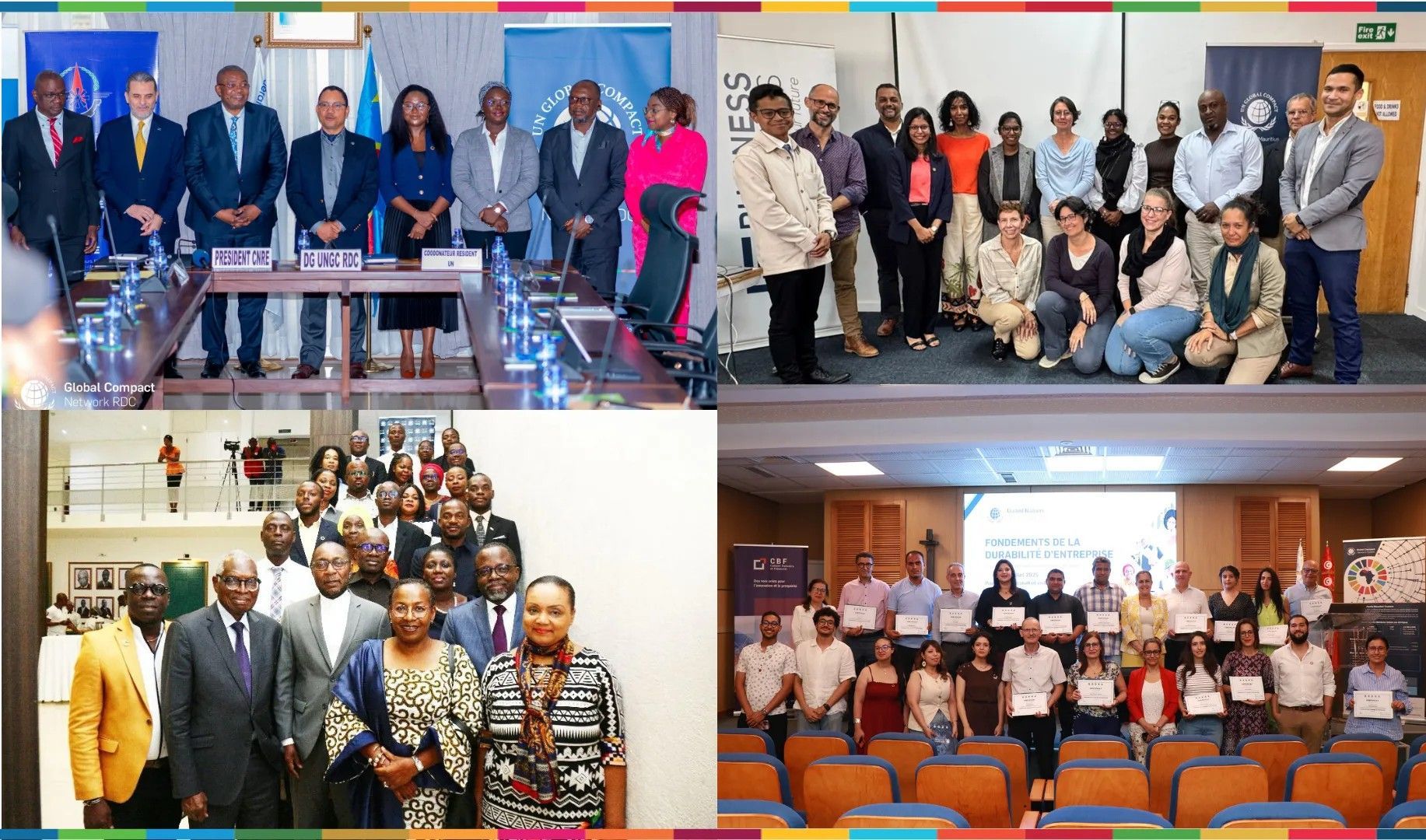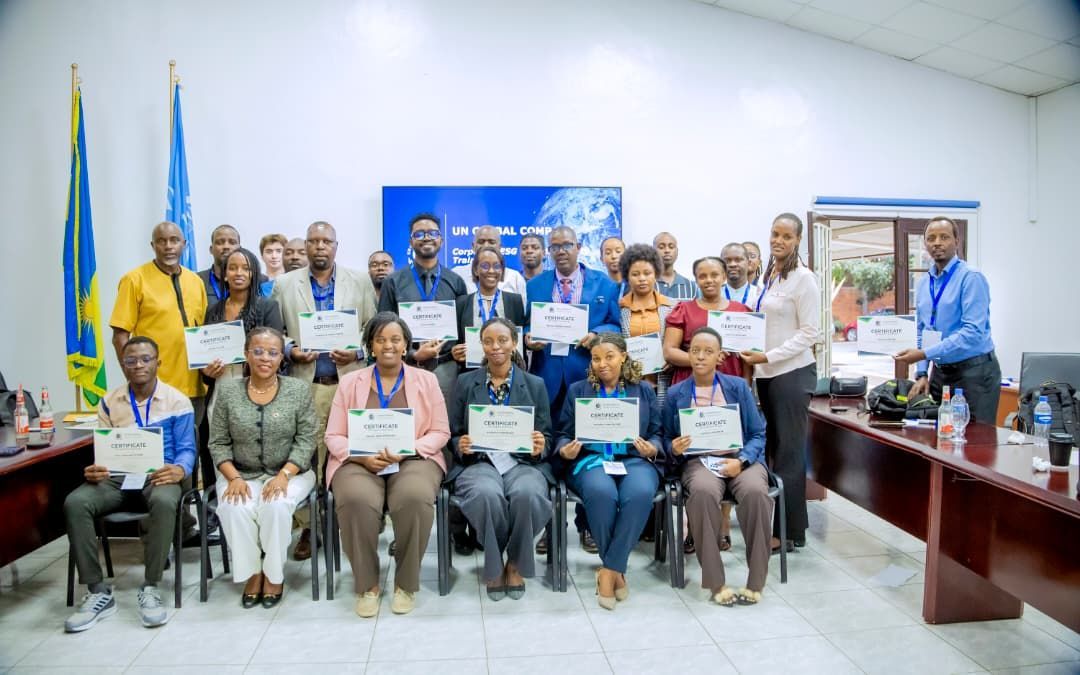Sustainable Growth in Africa: Leveraging ESG Standards and Tech for Market Readiness
Sustainable Growth in Africa: Leveraging ESG Standards and Tech for Market Readiness

Panelists at the ABF2025 17 February 2025 ©United Nations Economic Commission for Africa (ECA)
The Africa Business Forum 2025 (ABF), held on 17 February in Addis Ababa and organised by the United Nations Economic Commission for Africa (ECA), brought together thought leaders and stakeholders to explore pathways for transforming Africa’s regional value chains. A key focus was the roundtable discussion titled Achieving Sustainability and Standards Compliance: Unlocking African Value Chains for Local and Global Markets. Dr Hervé Lado, Africa Head, United Nations Global Compact, joined a distinguished panel including Dr. Debo Akande of the International Institute of Tropical Agriculture (IITA); Ms. Serah Makka of the ONE Campaign in Africa; Amb. Albert Mudenda Muchanga of the African Union Commission (AUC); Dr. Hermogène Nsengimana of the African Organisation for Standardisation (ARSO); and Dr. Sylvia Vito of Eva Pharma. Together, they emphasised the critical role of technology in advancing sustainability, driving efficiency, and enhancing global market readiness across key sectors such as leather, minerals, pharmaceuticals, and agriculture.
Dr. Lado highlighted the transformative potential of the Ten Principles of the UN Global Compact
and the 17 Sustainable Development Goals (SDGs)
in empowering African businesses, particularly SMEs, to thrive in emerging markets. He underscored how these principles—spanning human rights, labour, environment, and anti-corruption—provide a robust framework for aligning with universal sustainability standards. Through adoption of these principles, African SMEs can build trust, ensure compliance, and enhance their competitiveness in global markets while contributing to sustainable development. This alignment strengthens market readiness and positions SMEs as key players in driving efficiency and innovation across critical sectors.
For African SMEs, adopting these principles is a strategic advantage. Embedding sustainability into core operations improves reputation, attracts ethical investors, and opens access to international markets. The Ten Principles also serve as a foundation for achieving the SDGs, creating synergy between corporate responsibility and global development objectives.
A major challenge for African businesses is aligning with international Environmental, Social, and Governance (ESG) standards, traceability, and quality requirements, which are critical for accessing global markets and securing financing. The UN Global Compact’s framework offers a roadmap for African SMEs to meet these demands while fostering innovation and resilience. For instance, adherence to ESG principles can unlock green financing and ethical supply chains, while traceability standards ensure transparency and accountability. These standards can emphasized position businesses as reliable partners in global value chains, from agriculture and mining to pharmaceuticals and manufacturing.
Technological innovations such as blockchain, artificial intelligence (AI), and green technologies are transforming African business operations. Blockchain enhances supply chain transparency, AI streamlines quality control, and green technologies drive sustainable production. These advancements enable African SMEs to compete globally, meet compliance requirements, reduce costs, improve efficiency, and contribute to sustainable development.
As engines of innovation and job creation, African SMEs are central to the continent’s economic transformation and the achievement of the SDGs. With the alignment of the Ten Principles, SMEs can advance goals such as poverty reduction, gender equality, climate action, and sustainable industrialization. Their emergence in global markets presents a unique opportunity to drive inclusive growth. Through the right support, these businesses can scale operations, adopt sustainable practices, and access global markets, creating a ripple effect that benefits entire communities.
The Africa Business Forum 2025 underscored the transformative potential of aligning African value chains with global sustainability standards. The Ten Principles and the SDGs provide a clear pathway for African SMEs to enhance competitiveness, streamline compliance, and contribute to sustainable development. As Africa rises as a global economic powerhouse, integrating sustainability and technology will be key to unlocking its full potential, paving the way for a future where sustainability and competitiveness coexist and reinforce each other.
